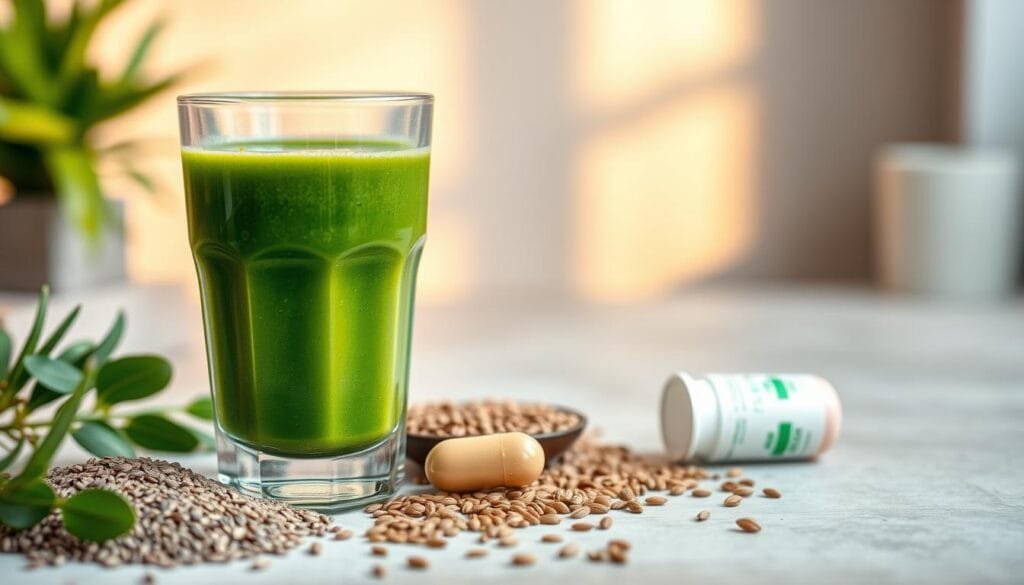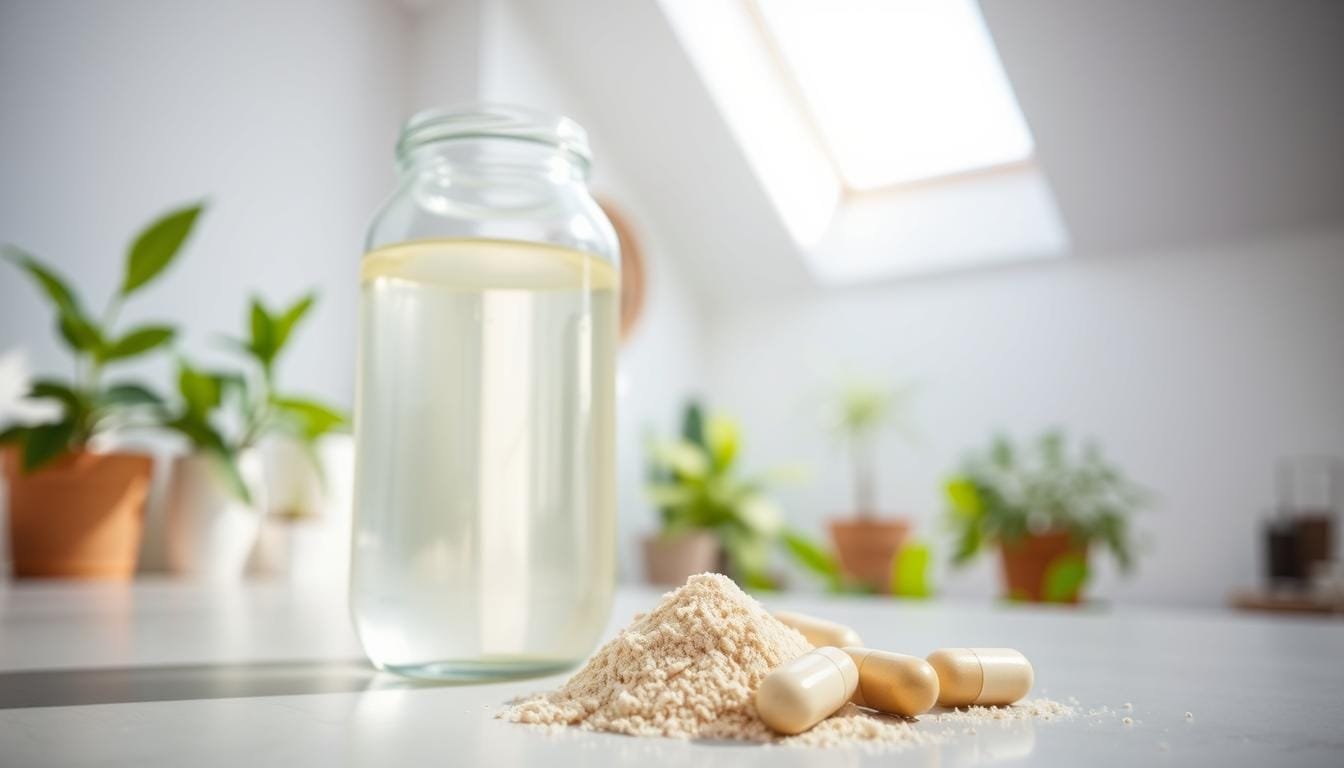Currently Empty: RM0.00
Many people turn to liquid nutrition plans to reset their eating habits or kickstart healthier routines. These programs often focus on fresh juice blends to deliver vitamins and minerals, but they can unintentionally leave gaps in daily nutrient intake. One participant who completed a month-long regimen shared: “You’ll likely miss certain elements that support digestion. Adding a quality probiotic and other nutritional aids made a noticeable difference.”
Balancing short-term goals with long-term health benefits requires careful planning. While liquid-focused approaches may help with temporary weight management, they aren’t always nutritionally complete. Experts emphasize the importance of maintaining gut health and digestive regularity during these periods, especially when solid foods are temporarily removed from the diet.
For those exploring these programs, personalized advice matters. Wellness Concept offers tailored guidance via WhatsApp (+60123822655) to help individuals adapt their routines safely. Their team addresses questions about nutrient balance, timing strategies, and sustainable practices for different program lengths.
Key Takeaways
- Liquid nutrition plans may lack essential nutrients needed for digestion
- Probiotics and targeted additions can enhance program effectiveness
- Gut health maintenance is crucial during restricted eating periods
- Program duration impacts nutritional requirements
- Professional guidance helps customize approaches for safety
Overview of Juice Cleanses and Nutritional Balance
Liquid diets are popular choices for detoxification and immediate health improvements. These programs promise quick results but often overlook essential dietary components. Let’s explore how they affect nutrient balance and digestion.
Understanding the Impact on Fiber Intake
Extracting liquid from produce removes natural dietary bulk. This process leaves behind the structural parts that support regular digestion. Without these elements, the body misses key benefits like stabilized energy and lasting fullness.
| Aspect | Whole Produce | Juiced Version |
|---|---|---|
| Dietary Bulk | High | None |
| Sugar Absorption | Slow | Rapid |
| Nutrient Density | Balanced | Concentrated |
Juicing Versus Whole Fruits and Vegetables
Choosing between blended drinks and intact produce affects more than texture. Whole items deliver vitamins alongside natural buffers that slow sugar release. Processed versions provide quick nutrient boosts but lack mechanisms to prevent energy crashes.
Most programs suggest 4-5 daily servings of 12-ounce blends. While this floods the system with vitamins, it skips elements crucial for gut harmony. Planning duration carefully helps minimize digestive disruptions during these phases.
Benefits and Drawbacks of a Fiber Supplement During Juice Cleanse
Exploring smart additions to short-term dietary plans can optimize results while addressing common gaps. While fresh-pressed drinks deliver concentrated vitamins, they often miss components that maintain digestive rhythm and metabolic balance.

Positive Effects on Gut Function and Fullness
Adding soluble dietary aids helps maintain regular elimination patterns. These products absorb water to create gentle bulk, supporting the body’s natural detox pathways. They also slow sugar release from fruit-based drinks, preventing energy spikes.
Many participants report better appetite control when including these additions. One nutrition coach notes: “Clients feel less tempted to snack when their blends include satiety-boosting elements.”
Challenges With Metabolic Interactions
Overconsumption of certain additives might disrupt blood glucose management. Some formulas contain sweeteners that counteract the program’s goals. This table shows key considerations:
| Benefit | Advantage | Consideration |
|---|---|---|
| Appetite Control | Reduces hunger pangs | May add calories |
| Sugar Regulation | Slows fructose absorption | Requires precise timing |
| Digestive Support | Maintains bowel regularity | Could cause bloating |
Personal Factors in Program Customization
Individual needs determine ideal approaches. Those with sensitive digestion might start with smaller doses. Activity levels and existing medical conditions also influence what enhancements work best.
Wellness specialists recommend consulting professionals before modifying any regimen. This ensures compatibility with personal health objectives and minimizes unintended effects.
Scientific Findings and Expert Opinions on Juice Cleanses
New research reveals surprising effects of popular dietary approaches. Scientists now examine how temporary eating patterns influence bodily systems beyond simple weight management.
Insights from Recent Studies and Research
A 2024 investigation in MDPI Nutrients tracked 14 adults during a 3-day regimen. Participants showed dramatic oral microbiome shifts – inflammatory Proteobacteria increased by 37%, while beneficial Firmicutes decreased.
| Bacteria Type | Change | Health Impact |
|---|---|---|
| Proteobacteria | +37% | Linked to gum disease |
| Firmicutes | -29% | Reduced fiber processing |
| Actinobacteria | No change | Maintained skin health |

These changes occurred within 72 hours. Researchers noted higher cardiovascular risks in participants with existing oral health concerns. The study concludes short-term plans might affect bodily systems more than previously understood.
Expert Perspectives on the Nutritional Trade-offs
Nutrition specialists voice concerns about popular regimens. “Our bodies need consistent fuel,” states Dr. Aminah Tan, a Kuala Lumpur dietitian. “Low-calorie approaches may disrupt metabolic balance rather than enhance it.”
The FDA warns about unverified detox claims. Many commercial products contain hidden ingredients that could strain organs. Registered nutritionist Mei Ling adds: “Your liver and kidneys handle toxins daily. Extreme measures might actually hinder their natural processes.”
Key medical recommendations include:
- Limit restrictive plans to 24-48 hours maximum
- Monitor energy levels carefully
- Consult professionals before attempting extended programs
Practical Guidelines for Optimizing Your Juice Cleanse Experience
Optimizing nutritional intake requires smart strategies when following liquid-based plans. Experts suggest consuming four 12-ounce servings daily, focusing on blends with 80% leafy greens and 20% low-sugar produce like berries. This balance delivers nutrients while keeping sugar intake manageable.
Smart Additions for Balanced Nutrition
Introduce dietary aids gradually to avoid digestive discomfort. Start with half the recommended dose, increasing slowly over three days. Always pair these additions with extra water – at least 2 cups per serving – to support smooth digestion.
Space consumption between juice servings rather than mixing directly. This preserves flavor integrity and prevents interference with nutrient absorption. A wellness coach shares: “Timing matters as much as quality. Mid-morning and mid-afternoon windows work best for most clients.”
Personalized Support for Lasting Results
Wellness Concept provides tailored advice through WhatsApp (+60123822655). Their team helps create sustainable routines during business hours:
- Weekdays: 9:30 AM – 6:30 PM
- Weekends: 10:00 AM – 5:00 PM
They recommend combining fresh-pressed drinks with probiotic-rich options for gut harmony. For those managing energy levels, adding small amounts of avocado or chia seeds can enhance satiety without disrupting program goals.
Conclusion
Balancing short-term dietary experiments with long-term wellness requires careful thought. While juicing plans might offer quick results, research shows they can disrupt gut bacteria balance within just three days. This makes maintaining digestive health challenging for many people.
Nutritionists in Malaysia often recommend prioritizing whole fruits and vegetables over restrictive diets. These natural foods provide essential vitamins, minerals, and nutrients without the risks of extreme calorie reduction. As one expert notes: “Sustainable habits beat temporary fixes every time.”
Those considering cleanses for weight loss should consult professionals first. Qualified advisors can help create personalized plans that align with individual needs while minimizing health risks. Remember – true wellness comes from nourishing your body consistently, not through drastic measures.
Building lasting health benefits means choosing varied, nutrient-rich foods over trendy regimens. Your body’s natural systems work best when supported by balanced choices rather than extreme interventions.
FAQ
How do juice cleanses affect daily nutrient intake?
While fresh juices provide vitamins and minerals, they often lack essential components like dietary fiber. Removing skins and pulp during juicing reduces insoluble fiber, which supports digestion and gut health. This gap can leave some feeling less satisfied or disrupt regular bowel movements.
Can drinking juices replace eating whole fruits and vegetables?
Juices shouldn’t fully replace whole produce. Blending or pressing removes beneficial plant compounds found in skins and seeds, such as antioxidants. Whole foods also slow sugar absorption, helping maintain steady energy levels compared to liquid options.
What are the risks of relying solely on juices for meals?
Liquid diets may lead to rapid spikes in blood glucose due to concentrated natural sugars. Over time, this can strain insulin response. Additionally, low protein and healthy fat intake might leave individuals feeling fatigued or hungry, impacting long-term wellness goals.
Are there ways to make cleanses more balanced?
Pairing juices with nutrient-dense snacks like chia seeds or avocado adds healthy fats and protein. Some opt for soluble supplements like psyllium husk to support gut bacteria diversity. Staying hydrated and limiting cleanse duration also helps avoid nutrient deficiencies.
How do experts view short-term juice cleanses?
Registered dietitians often caution against extended cleanses but acknowledge short-term plans (1–3 days) may jumpstart healthier habits. The American Heart Association emphasizes prioritizing whole foods for sustained benefits, as juices alone can’t replicate the complexity of a varied diet.
What should someone consider before starting a cleanse?
Individual needs matter—athletes, pregnant individuals, or those with diabetes should consult healthcare providers first. Tracking energy levels and adjusting intake ensures the body gets enough calories. Brands like Wellness Concept offer tailored guidance to align cleanses with personal health objectives.


